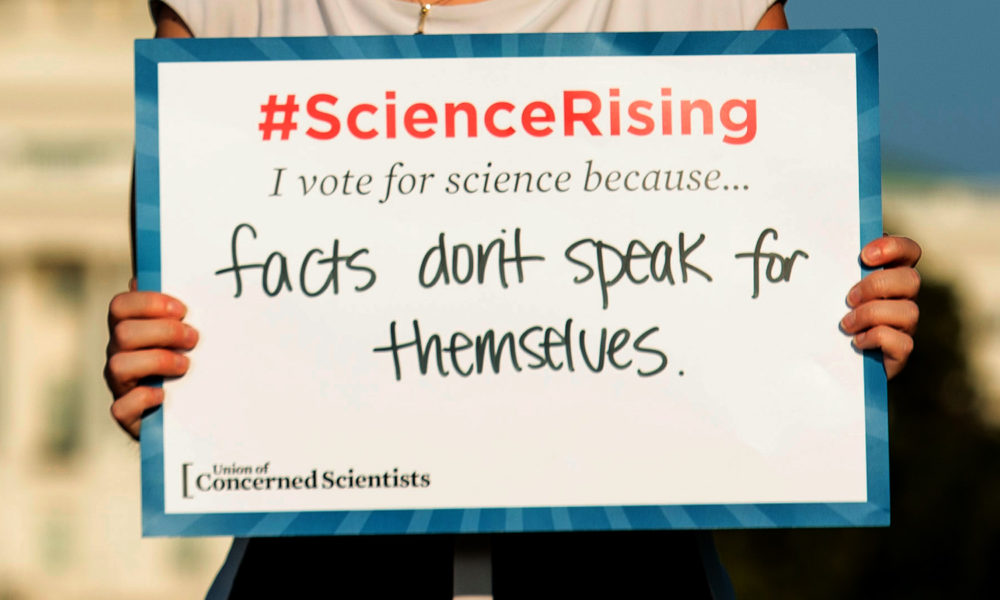About a week ago, I got a call from some scientists at Princeton and Columbia and the Federation of American Scientists. These scientists have been watching the actions of our leaders in this unusual election year, and like many others—myself included—they’re worried that our democracy itself is under threat, and that the science community shouldn’t be silent.
I agree completely. As director of the Center for Science and Democracy here at UCS, I have been watching nervously as a wave of misinformation and aggressive legal strategies from political leaders have combined with uncertainty around the COVID-19 pandemic to produce a climate of fear I’ve never seen in an election year. The colleagues I spoke with worried that this country was in danger of sliding into autocracy.
After our call, these scientists drafted a powerful statement expressing their concerns and calling on others to speak out:
As scientists committed to democratic principles, we observe troubling developments in the public affairs of the United States: the undermining of democratic checks and balances; threats to the electoral process; subversion of the rule of law; vilification of people of color, of other minorities, and of immigrants; the fomenting of hate, division, misogyny, and violence; attacks on the free press; propagation of disinformation; and sidelining of science as input to public policy. We must counter these trends that are moving the nation away from its roots in democratic self-governance towards authoritarianism.
We face a national crisis unlike any we have witnessed. It comes at a time when there is a pressing need to employ science to address urgent national and international challenges, including COVID-19, climate change, the danger from nuclear weapons, and racial and economic injustice.
Action is needed now to defend the democratic foundations of the United States. Other nations have gone down the path away from democracy, leading to dark places. We call on all people of conscience to consider and to act on these issues through the full exercise of their democratic and civil rights, including participating in the national debate, supporting candidates, voting, and defending the integrity of the electoral process.
These issues might be outside scientists’ usual day-to-day work, but we’re not living in usual times, and none of us can afford to be silent. Working with these scientists as well as colleagues in the Union of Concerned Scientists and the Federation of American Scientists, we posted the statement online and offered the opportunity for other scientists to join us.
In the midst of all this uncertainty and fear, it’s heartening to see the incredible response from across the scientific community. In the first 24 hours, more than 1000 scientists signed on. In the next 48 hours that number doubled and now has nearly tripled. This letter expresses the many concerns scientists hold about the state of our democracy.
America is confronted with a daunting array of societal challenges—from climate change, to the pandemic, to ongoing systemic racism, misogyny and inequality. Science can play a role in confronting and solving these challenges, and that means scientists themselves must commit to this work.
We can and must speak out when the institutions we depend on are failing—and the democratic process we rely on is under attack. This sign-on statement is just one opportunity to act. Another, clearly, is voting—and that should go hand in hand with encouraging your colleagues, students, lab mates, and all those in your community to vote.
Scientists can’t stay out of the fray and assume everything will work out. There are many ways for scientists to not just raise concerns about the state of our democracy, but to fight back. Go to ScienceRising.org to learn more.

